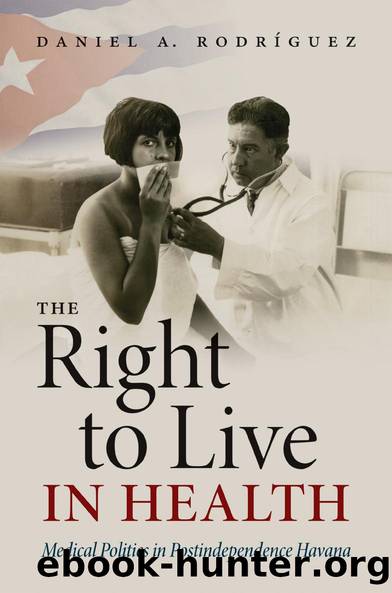The Right to Live in Health by Daniel A. Rodríguez

Author:Daniel A. Rodríguez [Rodríguez, Daniel A.]
Language: eng
Format: epub
Tags: Social Science, Ethnic Studies, General, Medical, Health Policy, History, Caribbean & West Indies, Cuba
ISBN: 9781469659749
Google: tMbaDwAAQBAJ
Publisher: UNC Press Books
Published: 2020-07-21T02:47:03+00:00
Figure 4.1 Advertisement for Maltina malted beer, which promised lactating mothers âabundant milkâ and âstrong and healthy babies.â (El Mundo, January 4, 1915)
The National Motherhood Competitions reinforced the idea that mothers had a natural, moral, and even patriotic duty to nurse their young: indeed, as the mothers in attendance were told during the 1918 competition, âThe future of the Nation depends, in large part, on the results of your endeavors.â74 But in elevating poor mothers who were nevertheless able to nurse their young and presenting them as âmodels of maternityâ for all Cuban women, the health officials downplayed economic barriers to breastfeeding.75 Sometimes they were explicit that there were no economic barriers at all. For José Antonio López del Valle, the director of Havanaâs local Department of Health, âthe concursos present[ed] the spectacular example of mothers who, despite the difficult economic situations in which they find themselves, of the privations and heartbreaking struggles they experience due to their lack of resources, have nevertheless nursed their children at their own breast and complied with the health regulations, proving in this way that poverty does not prevent these practices.â For López del Valle, proper health education and a nationalist embrace of âtheir most sacred dutiesâ as mothers were all that was required to ensure the health of Cuban children. But poverty was most certainly a barrier to breastfeeding, as reports published by the Ministry of Health made clear. Indeed, in his 1917 study on infant mortality, Mario Lebredo admitted that poor urban women, forced by economic necessity to work in factories or in domestic labor, âcannot nurse their children with their own milk.â76 What was needed more than anything, he argued, was âthe creation of crèches and shelters to care for young childrenâ while their mothers âworked to earn a living.â77 By 1917, several crèches, or free daycare centers, did exist in the capital, providing an important source of free childcare for working women. But, as we will see, a lack of government support stymied this institution, leaving it out of reach for all but those mothers lucky enough to secure one of the limited spots.
Download
This site does not store any files on its server. We only index and link to content provided by other sites. Please contact the content providers to delete copyright contents if any and email us, we'll remove relevant links or contents immediately.
| Antigua | Bahamas |
| Barbados | Cuba |
| Dominica | Dominican Republic |
| Grenada | Haiti |
| Jamaica | Saint Kitts |
| Saint Lucia | Saint Vincent |
| Trinidad and Tobago |
Cat's cradle by Kurt Vonnegut(15309)
Pimp by Iceberg Slim(14468)
4 3 2 1: A Novel by Paul Auster(12356)
Underground: A Human History of the Worlds Beneath Our Feet by Will Hunt(12075)
The Radium Girls by Kate Moore(12003)
Wiseguy by Nicholas Pileggi(5754)
The Fire Next Time by James Baldwin(5413)
Perfect Rhythm by Jae(5386)
American History Stories, Volume III (Yesterday's Classics) by Pratt Mara L(5288)
Paper Towns by Green John(5165)
Pale Blue Dot by Carl Sagan(4986)
A Higher Loyalty: Truth, Lies, and Leadership by James Comey(4941)
The Mayflower and the Pilgrims' New World by Nathaniel Philbrick(4475)
The Doomsday Machine by Daniel Ellsberg(4475)
Killers of the Flower Moon: The Osage Murders and the Birth of the FBI by David Grann(4427)
The Sympathizer by Viet Thanh Nguyen(4372)
Too Much and Not the Mood by Durga Chew-Bose(4321)
The Borden Murders by Sarah Miller(4298)
Sticky Fingers by Joe Hagan(4177)
